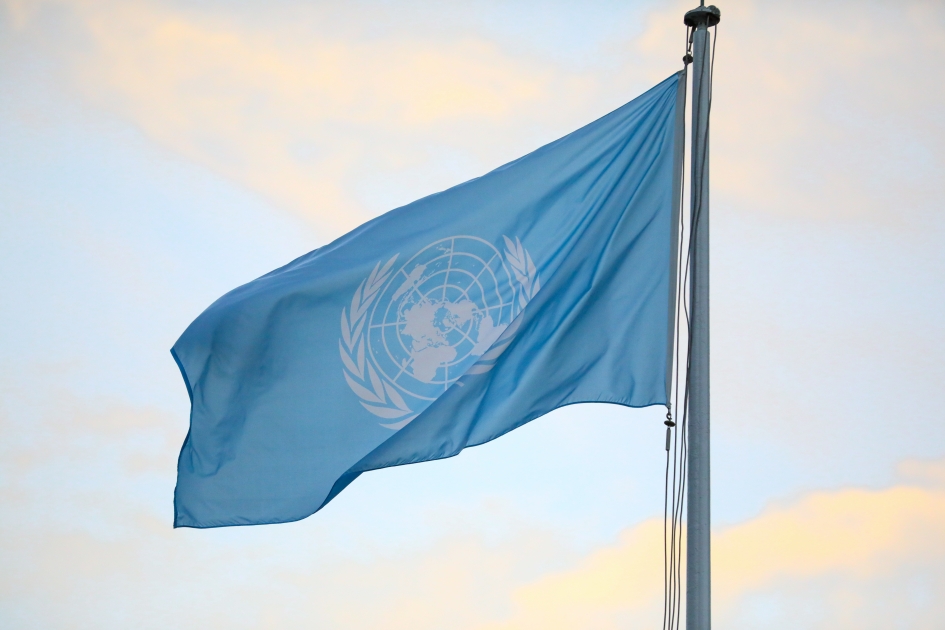Statement by Deputy Permanent Representative Anna Evstigneeva at UNSC briefing on the situation in Mali
Mme.President,
We thank Special Representative El-Ghassim Wane for the briefing on the work of the UN Stabilization Mission in Mali and the situation in that country. We also listened carefully to Ms. Bouaré Samaké. We welcome the Permanent Representative of Mali to this meeting.
Malians will be able to overcome the existing challenges successfully only if the country enjoys internal political stability. We see that transitional authorities are strongly committed to solving the accumulated problems gradually.
By all means, recovery of the constitutional order is a priority issue. In the reporting period, we heard Malian authorities commit to step-by-step implementation of this task. The authorities launched a broad national process on issues related to preparing for the elections and instituted an extended working group, as well as a special “dialogue group” to facilitate negotiations with the African Union and ECOWAS. All of this proves that the current authorities adopted a constructive approach and have no hidden agenda. Hopefully, the talks between Bamako and ECOWAS will soon yield fruit. We call on both sides to set forth dialogue, and we call on the intermediaries to not loosen their efforts.
We share the concern of Malian leadership regarding the escalating situation in the country’s northern regions, where drawdown of French military presence creates a security vacuum. Bamako reports that the decision on complete withdrawal of Barkhane was made last fall without coordination with the Malian side, which violated relevant bilateral agreements. We regard such actions as extremely irresponsible.
We also share the assessments of Secretary-General’s report about the negative implications of such acts by France and its EU allies for implementation of MINUSMA’s mandate, especially in terms of risks to security of peacekeepers. It is also unclear what bearing the withdrawal of Barkhane and Takuba is going to have on combat capacity of G5 Sahel Joint Force, which is called to be on the frontline of fighting terrorism in the Sahel.
Let me also remind our Western partners that Mali and the Sahel are victims of your 2011 intervention in Libya. Since that time, the region has turned into a target for banditism and terrorism. Back in 2013 you decided to help, which is a step worth being respected. But look at the result of your assistance. The situation saw no significant improvement starting from 2013 and up to 2021. Now, having failed to achieve anything, you are leaving Mali behind on a far-fetched pretext, though it is a country that everyone agrees is key in terms of stability and security in the Sahel space.
Now that Malians are left alone in the face of serious cross-border challenges, transitional authorities have to seek ways to protect their people by their own efforts, and also through cooperation with partners and organizations from other states. Malian authorities have a sovereign right to decide whom to cooperate with.
We welcome that Malian armed forces bolstered counter-terrorism operations that brought certain results and unblocked a number of settlements in central Mali. We pay tribute to Malian military and express our condolences to families of those killed – military servicemen, civilians, and UN peacekeepers. We call to honor memory of all victims of terrorism.
We note the commitment of Malian General Staff to observing human rights and the international humanitarian law. We commend Bamako’s efforts in investigating the incidents of reported human rights violations. As for the information campaign about so-called Russian mercenaries, we regard it as part of a malevolent geopolitical game.
Mr.President,
Cooperation between Russia and Mali has a long history and tradition. Russia provides assistance to Malian armed forces on the basis of bilateral agreements. We are working to improve their capacity, train members of military and law enforcement. Currently 200 servicemen and 9 police officers from Mali receive training in Russia.
Regional sanctions and Western restrictions imposed on Mali will not add to stabilization in the country. They but further aggravate the already complicated situation, to say nothing of their negative implications for ordinary Malians. And not only Malians for that matter, but also people from other countries of the region. In these circumstances, it will be even harder for Bamako and its neighbors to overcome the looming threats, of which terrorism is the main one.
Today we once again heard Russia being accused of allegedly bringing hunger to the Sahel. Some time ago, climate was to blame. Now it is Russia. Meanwhile, Mali is beset with sanctions, its borders are closed, commercial routes blocked. People of the entire region suffer in the absence of basic income. They take to the streets, but look at their slogans. Russia is mentioned there, but alas, not in the manner the West would imagine.
Let me point out again that consequences of unprecedented anti-Russian sanctions that disrupted logistical and financial chains and global ties, prove to most states, including in Africa, how important it is to work towards having political independence and own financial capacities, overcome the colonial legacy and reject the remaining neocolonial mechanisms.
To conclude, Russia will keep helping Malians, i.a. in the framework of collective efforts aimed at stabilization in the region. At the same time, we encourage Bamako to implement a well-balanced policy for crisis settlement.
The initial version of my statement had words of hope that Mali’s traditional partners would abandon the stance of overbearing supremacy and the language of sanctions, that they would embark on a mutually respectful dialogue with Bamako and find ways to overcome all contradictions. However, this discussion makes me admit that this hope is not likely to come true, and that Western states will not heed the call for an equal, mutually beneficial and respectful cooperation.
Thank you.
